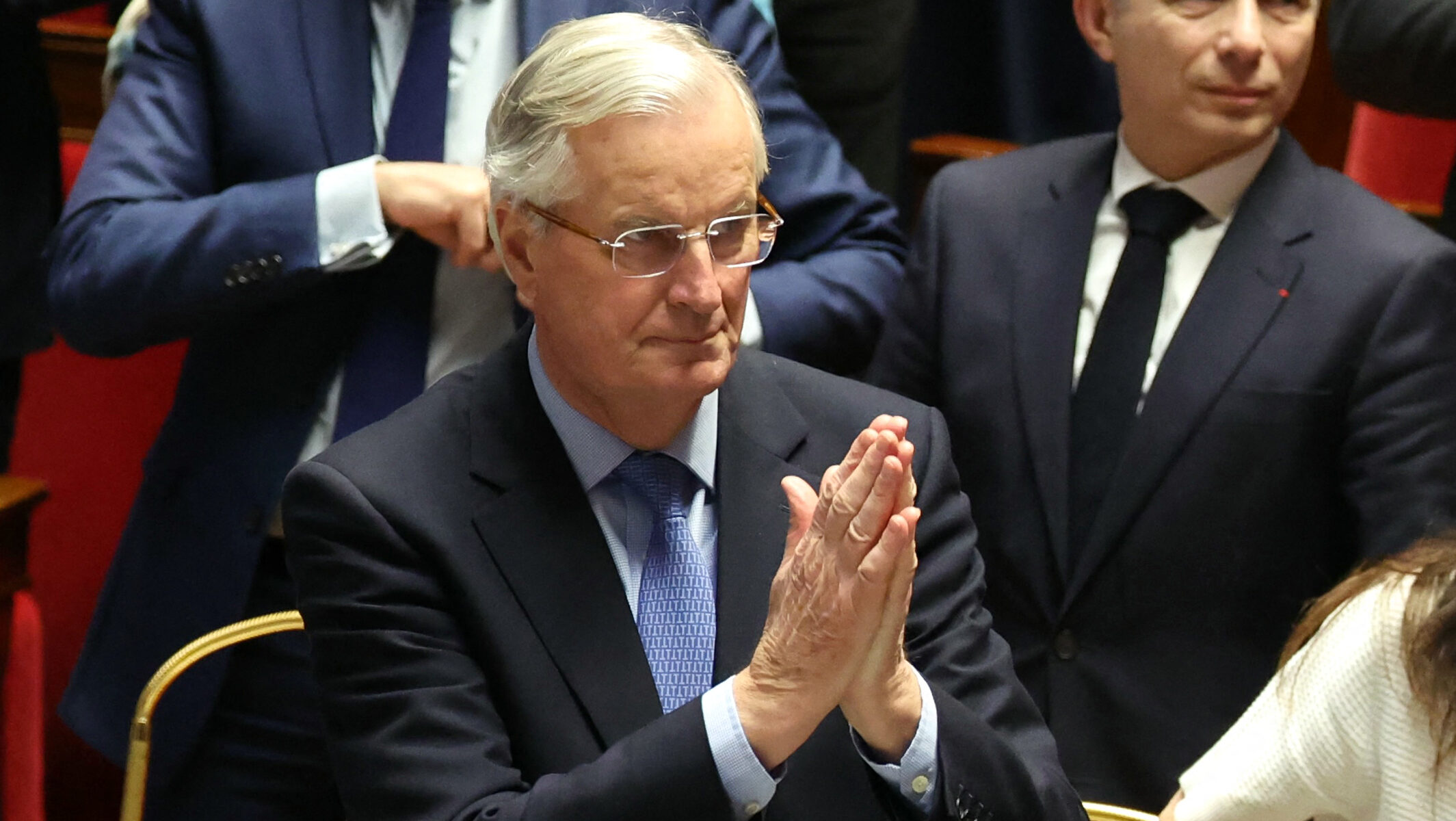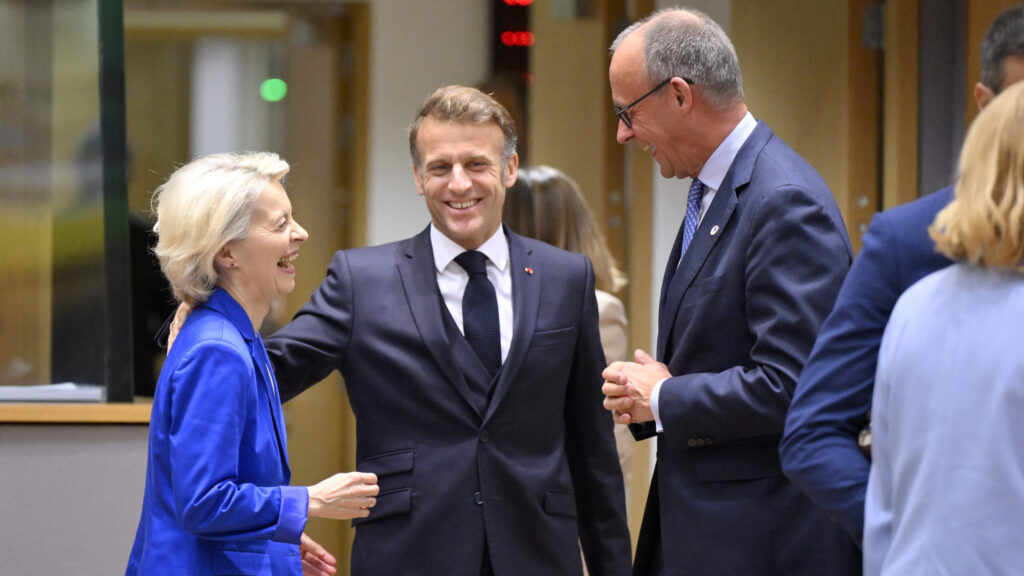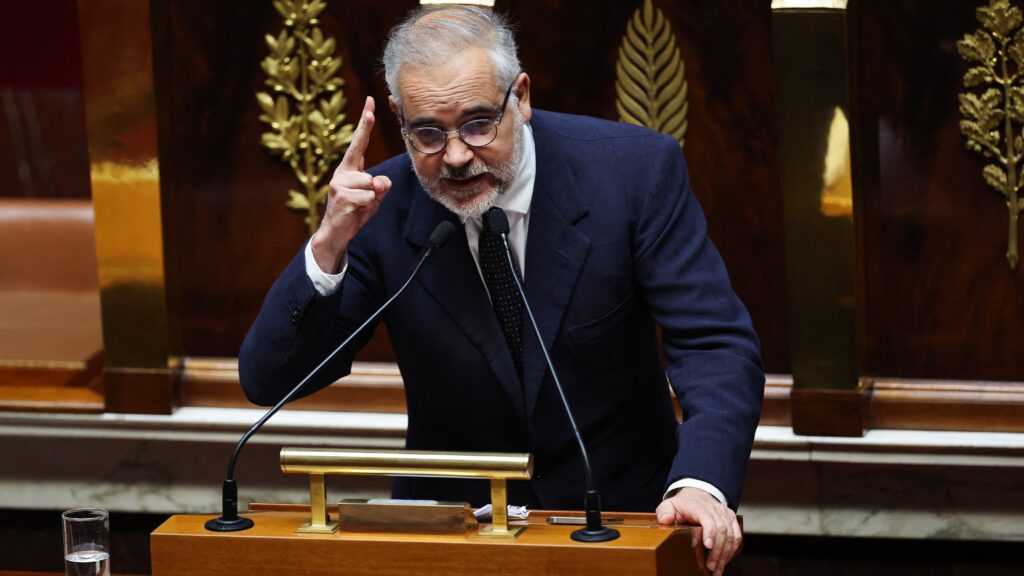On Wednesday evening, the French National Assembly passed a motion of no confidence tabled by the far-left and Socialist alliance New Popular Front, and the right-wing National Rally (RN), led by Marine Le Pen. This unprecedented move, the first of its kind in France since 1962, means that Prime Minister Michel Barnier, who has been in office for barely three months, will be required to submit his resignation to President Emmanuel Macron.
The motion of no confidence was passed by 331 of 577 MPs in the National Assembly, well above the 288 votes required to topple the government.
The minority government, formed in September after fifty days of negotiations following the early National Assembly elections in July, has now become the shortest-lasting cabinet in the history of the Fifth Republic.
It’s Always the Budget
The vote of no confidence came after Michel Barnier announced on Monday that he would implement next year’s social security budget without a parliamentary vote. While a compromise proposal had been approved by a joint committee of the lower and upper houses, it lacked majority support in the National Assembly.
According to the French Constitution, a draft bill is considered adopted by parliament if a majority of ministers agree to bypass the vote and no party tables a motion of no confidence against the government within 24 hours.
On Monday, the left-wing bloc was the first to table a motion, followed swiftly by Marine Le Pen, who announced that her party would do the same and was prepared to support the left’s proposal to bring down the government.
Both opposition blocs denounced the proposed austerity measures for next year as unacceptable. However, during Wednesday’s debate on the no confidence motions, many of the leaders of the parliamentary parties made it clear that their primary aim was to destabilize Macron and pressure him to leave office. By toppling the government, which is supported by the president’s party and three other centre-right groups, they sought to weaken the president, even though his mandate runs until 2027 and is not tied to the government’s survival.
‘Many of the leaders of the parliamentary parties made it clear that their primary aim was to destabilize Macron and pressure him to leave office’
Speaking for the radical left-wing France Unbowed (La France Insoumise), Mathilde Panot called for the resignation of Emmanuel Macron and early presidential elections immediately after the vote.
Le Pen stated that the government had failed due to Macron’s continued ‘technocratic decisions’. However, she added that she would ‘let the new head of government work’ to ‘draft a budget acceptable to all.’ Le Pen highlighted that she is not calling for the resignation of Macron. She remarked that the head of state ‘must draw his own conclusions as to whether or not he is capable of remaining president in the current situation.’
Before the vote, Barnier warned of France’s dire fiscal challenges, noting that the country spends €60 billion annually on interest on its public debt—more than it allocates for defence or higher education. He cautioned that the public deficit could exceed 6 per cent of GDP this year. ‘We can say what we want, but this is the reality. Believe me, this reality will not disappear with the magic of a motion of no confidence,’ Barnier said.
Macron Gambled and Lost
The current situation is plunging France into a domestic political crisis. With no early elections able to be scheduled until next summer, Macron’s party and its allies are expected to form another minority government. However, significant legislative activity in the fragmented National Assembly is unlikely in the near term.
According to an analysis by ING Economics, there is even a scenario in which France could enter 2025 without an approved budget. This outcome, however, is considered unlikely, as provisions exist for an extension of the 2024 budget, which would prevent a government shutdown.
Most political analysts attribute the current crisis to Macron. After his party’s disastrous performance in the European Parliament elections this summer, the president called early elections, which led to a deeply fragmented parliament. It was already evident then that passing the budget would be a significant challenge and that the government was at risk of collapse.
The Time has Come for Le Pen?
However, another factor played a crucial role: a shift in Le Pen’s tactics.
French political analyst François Valentin has published a detailed piece on X analyzing how leader of the right has skillfully navigated the political landscape. According to Valentin, Le Pen, as leader of the main opposition party, initially maintained a stance of tactical neutrality toward the minority government. However, during the budget debate, she began to draw increasingly firm redlines.
Valentin suggests that this shift may be part of Le Pen’s strategy to bolster her party’s appeal among pensioners—a demographic that has not been a stronghold for them in recent years. The government fell mainly because Barnier’s refusal to fully index pensions to inflation.
François Valentin on X (formerly Twitter): "French PM Michel Barnier has fallen last night after a mere 3 months in office over the budgetThe stakes are huge. Who will replace Barnier? Will Macron resign? Can France avoid a US-style shutdown?A 🧵on what happened and what happens next pic.twitter.com/arh7uIXD4V / X"
French PM Michel Barnier has fallen last night after a mere 3 months in office over the budgetThe stakes are huge. Who will replace Barnier? Will Macron resign? Can France avoid a US-style shutdown?A 🧵on what happened and what happens next pic.twitter.com/arh7uIXD4V
The government’s collapse plays into Marine Le Pen’s hands, as it increases the chances of a potential early presidential election—although such a scenario remains highly unlikely. Le Pen’s situation is particularly noteworthy given that prosecutors have recently requested she be found guilty of embezzlement, sentenced to prison, and barred from holding public office for the next five years. If convicted, she would be unable to run in the 2027 presidential election—but she could still be eligible to stand in an early election.
In the wake of the no confidence vote, calls for Emmanuel Macron’s resignation have intensified. The president is scheduled to deliver a speech at 8pm on Thursday to clarify his next steps.
Whatever the outcome, one thing is certain: paralysis in one of the EU’s leading states could persist in the coming months, casting a shadow over Macron’s second presidency. Questions also arise about how seriously a second Trump administration would regard a politically unstable and weakened France as an equal negotiating partner. Based on past experience, the answer is likely: not very much—an unsettling prospect for the European Union as a whole.
Related articles:







